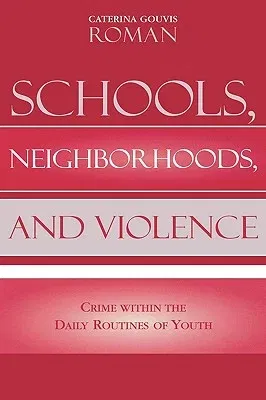Caterina Gouvis Roman
(Author)Schools, Neighborhoods, and Violence: Crime Within the Daily Routines of YouthHardcover, 22 October 2004

Qty
1
Turbo
Ships in 2 - 3 days
In Stock
Free Delivery
Cash on Delivery
15 Days
Free Returns
Secure Checkout

Print Length
120 pages
Language
English
Publisher
Lexington Books
Date Published
22 Oct 2004
ISBN-10
0739109014
ISBN-13
9780739109014
Description
Product Details
Author:
Book Format:
Hardcover
Country of Origin:
US
Date Published:
22 October 2004
Dimensions:
22.86 x
16.05 x
1.4 cm
ISBN-10:
0739109014
ISBN-13:
9780739109014
Language:
English
Location:
Lanham, MD
Pages:
120
Publisher:
Weight:
290.3 gm